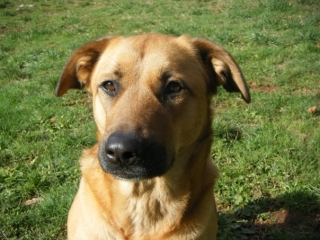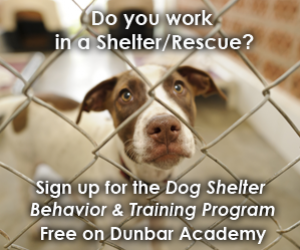Give Your Dog Some People Food!

Yes, I said it. In fact, I say it and do it almost every day. I'm quite surprised at the number of clients who are afraid to give their dog "people food" and who are proud to have been keeping their dog from it.
First off, the very best dog food is made from wholesome, REAL people food. If your dog food and dog treats are filled with things that human's wouldn't eat, you might want to re-think your dog's diet! High-quality dog foods are made with things like chicken, beef, fish, cheese, veggies and fruits that could have just as easily landed on a human's dinner table. When's the last time you served chicken meal or animal digest for dinner? Do you even know what that is?
Most trainers use so-called "people food" as training treats or as ingredients to make their own training treats. For one thing, they're often much healthier than those packaged for dogs. For another, they're often far more motivating! Nothing beats pea-sized pieces of chicken breast, cheese, hot dogs (the good kind), roast beef, dried squid, smoked salmon...the list is huge!
I'm a huge fan of giving dogs people food in addition to a high-quality kibble. My own dogs get a bit of whatever we had for dinner the night before. They get a little less kibble and some people food in order to provide variety and extra nutrition. Keep in mind, this is only good for the dog if YOU are eating a healthy diet! (See link below for foods your dog should not eat.)
So, what's the perceived harm in giving dogs people food? Two things: encouraging begging for food from people, and causing dogs to become overweight. The second issue is really a matter of portions, just as it is for people. Of course your dog is going to be overweight if you over-feed and under-exercise, regardless of what kind of food they are eating.
As for the begging business, I'm going to say it's rubbish. Yep, I really am. Let's think about this logically, shall we? Do you suppose dog's really understand that the food coming from a bag is "dog food" and the food coming from the fridge is "people food"? I would venture to guess that in a dog's world, food is food. In fact, the stuff that comes out of the litter box or garbage can is often considered food!
IF a dog only ever receives their food from a stuffed toy, stuffed bone or in a bowl, then that is where the dog is going to expect food to come from. What kind of food it is doesn't matter. What matters is that the dog understands the human decides when, where and how the dog will get it's food.
IF food is sometimes received from a human's plate as the human is sitting at a table or on the couch, then the dog will wait, stare and sometimes whine for this event to happen again. Why wouldn't he? There is the human on the couch with one of those round things in their hands. In the past, this scenario has resulted in food. The smart thing to do is to stick close and figure out a way to make it happen again.
What I'm saying here is that if you regularly sat at your dining table with a plate full of kibble and gave your dog a few bites here and there, your dog would regularly sit next to you at said kitchen table and beg for food. It doesn't matter if you are giving the dog kibble, canned dog food, salami or cat poop.
So, go ahead and use chicken, cheese and Cheerios for training treats. You can use your last few bites of dinner to train "sit". You just have to pay attention to the context. Take your plate to the kitchen, put the food in a dog dish, a bait bag or in your hand, move away from where you were eating and do some training. You can also put the left-overs in the fridge and do some training later to further distance your eating from a plate from giving your dog food.
A warning here! There are some foods that dog's should never have, like onions, chocolate and grapes. You can find a list of those foods here: http://www.peteducation.com/article.cfm?c=2+1659&aid=1030
Also, there ARE plenty of great training treats and dog foods out there made from wholesome, human grade, "people food". Read the ingredients on packages to make sure that your dog is getting more than just "dog food", but a high-quality FOOD.
Disclaimer: I am not a nutritionist or a veterinarian. Every dog is different and may suffer from food sensitivities or allergies. Your dog's diet should always be discussed with a veterinarian, coupled with your own research into a healthy canine diet.




